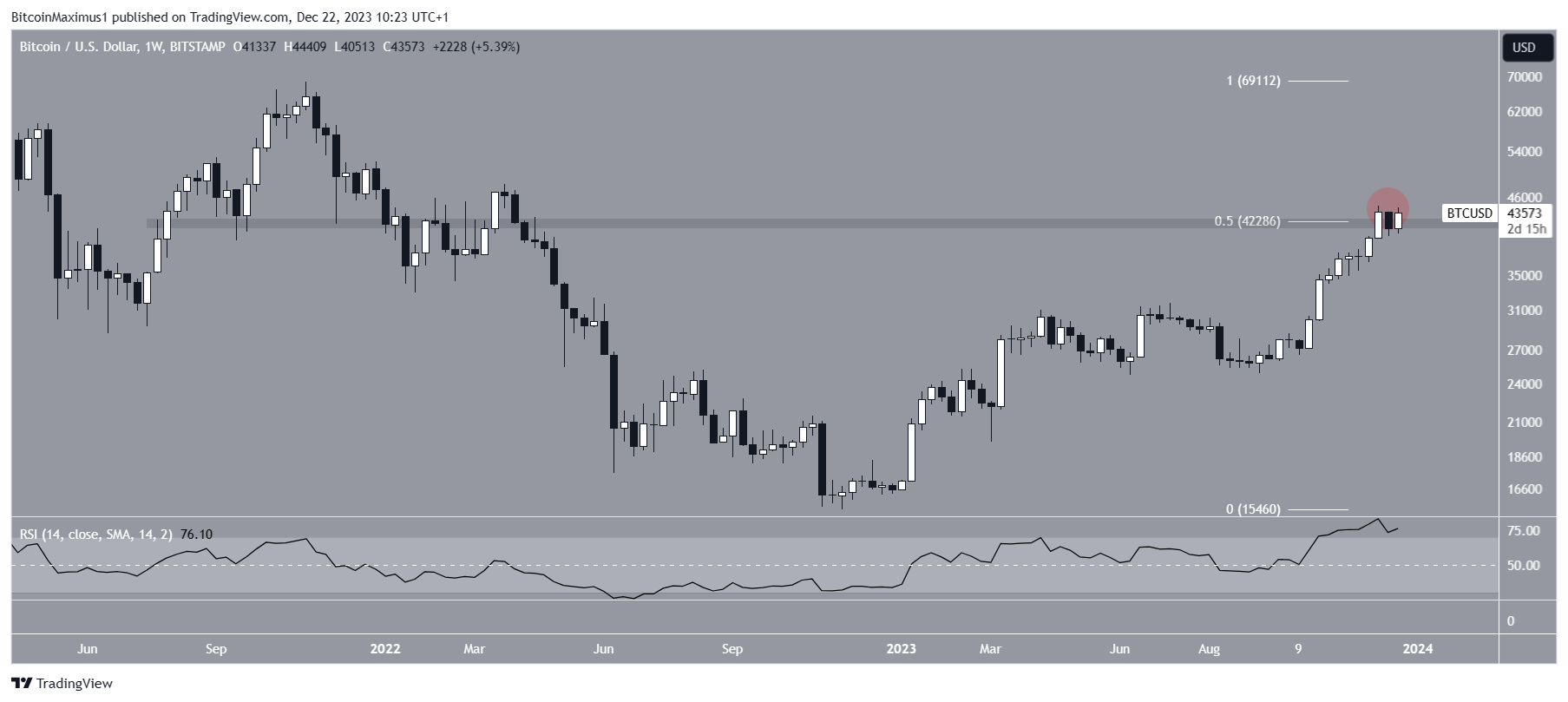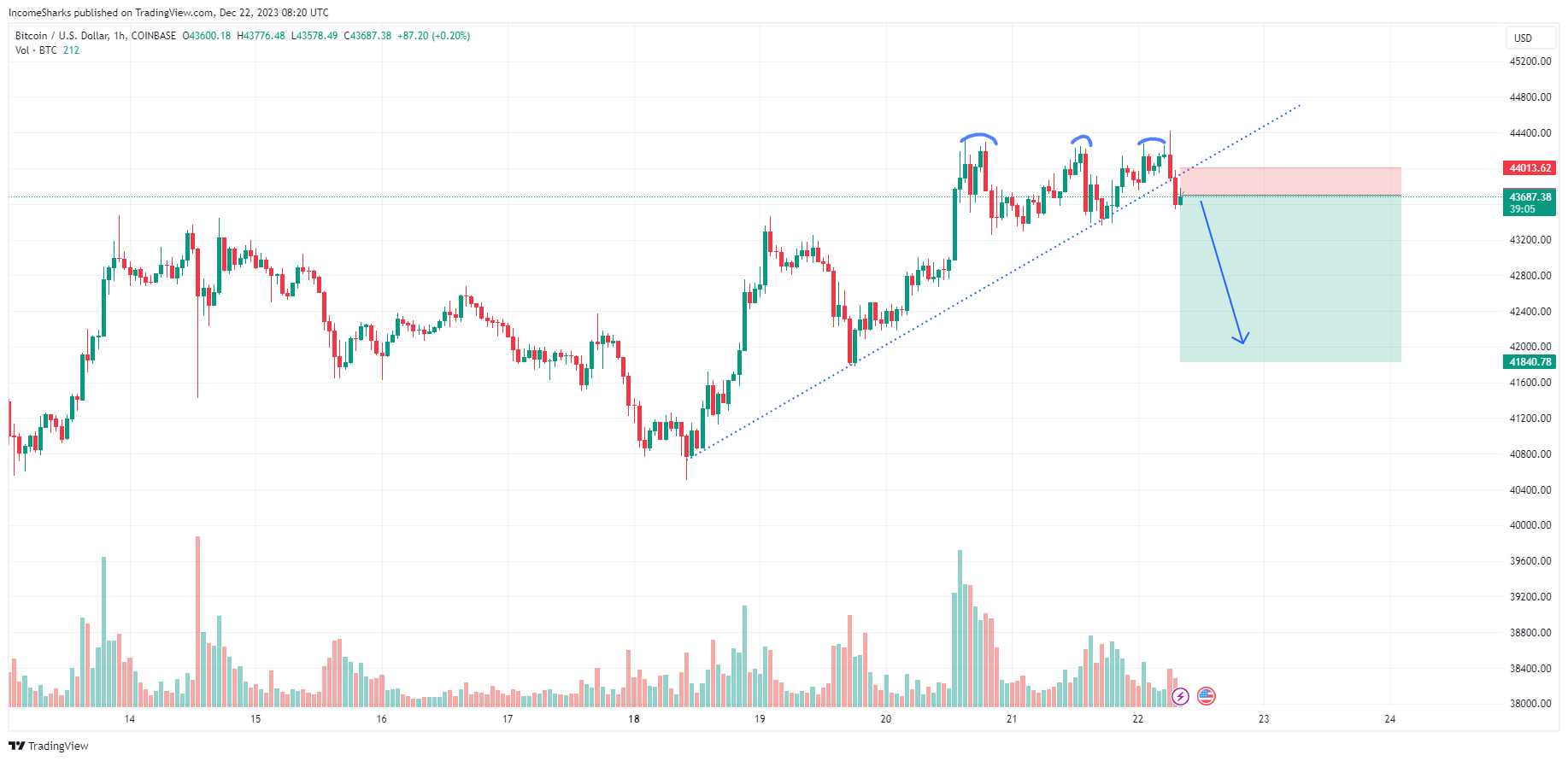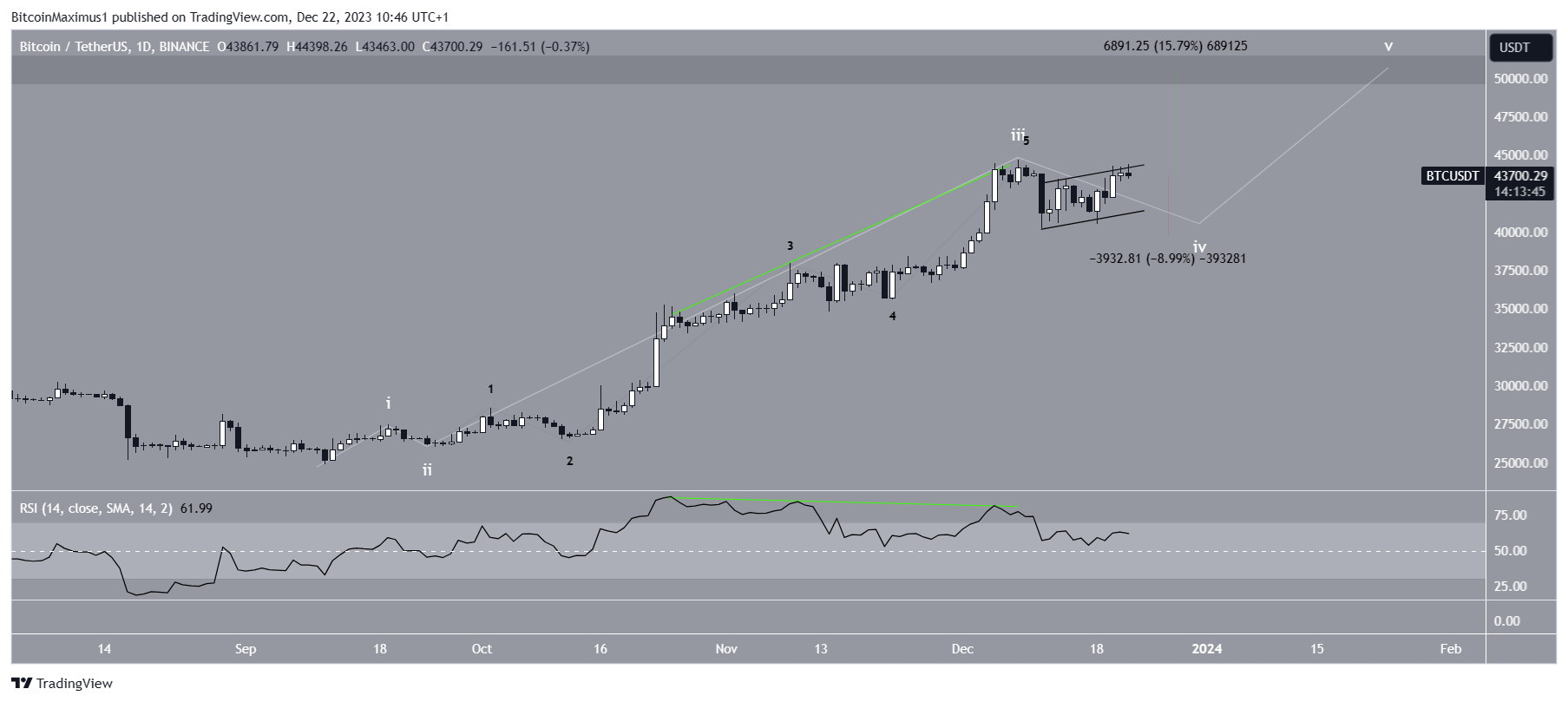The Bitcoin (BTC) price has fallen slightly since reaching a new yearly high of $44,730 on December 8.
The BTC price grapples with a long-term horizontal and Fib resistance level, having moved above and below it numerous times. Will BTC manage to reclaim it?
Bitcoin Attempts to Reclaim Resistance
In the weekly time frame technical analysis, Bitcoin has experienced a significant uptrend since October, reaching a new yearly high of $44,730 on December 8. The upward movement was characterized by eight consecutive bullish weekly candlesticks, pushing the price above a crucial horizontal and Fibonacci resistance zone.
The momentum shifted last week as Bitcoin witnessed its first bearish weekly candlestick since the start of the upward trend. Then, this drop resulted in a fall below a key resistance level, indicating the breakout may have been a deviation.
However, BTC has seemingly regained its footing again, and is attempting to reclaim this horizontal level (red circle).

Traders often use the Relative Strength Index (RSI) as a momentum indicator to assess whether a market is overbought or oversold, aiding in decisions to buy or sell an asset.
An RSI reading above 50 and an upward trend favors the bulls, while a reading below 50 suggests the opposite. Currently, the RSI remains above 50 and in overbought territory.
Although it has experienced a slight decrease, it has not crossed below the 70 threshold, which would be considered a bearish signal.
What Are the Analysts Saying?
Cryptocurrency traders and analysts on X have a mixed view of the future BTC trend.
Income Sharks suggests the short-term trend is bearish. He tweeted:
Quick short, easy invalidation. They’ll say it’s stupid to short this but then tell you to ape all your money into a token called $BONER on $SOL.

Because of the halving narrative, TATrader Alan suggests the price may reach $60,000 before retracing to $50,000.
BTC Price Prediction: Is the Price Still Correcting?
Technical analysts use the Elliott Wave theory to detect recurring long-term price patterns and investor sentiment, aiding in determining trend directions.
The most likely count suggests that BTC has initiated wave four within a larger five-wave upward movement (white) that commenced in September. The sub-wave count (black) illustrates an extended wave three.
The conclusion of wave three is indicated by a significant bearish divergence in the daily RSI, where a decline in momentum coincides with a price rise, often preceding downward movements. The fact that the BTC price trades inside an ascending parallel channel supports this.
As a result, the initial target for the completion of wave four is set at the minor support at $40,300, a 9% decrease from the current price. Afterward, the BTC price will be expected to initiate another upward movement and complete wave five.

Despite the bearish short-term BTC price forecast, a breakout from the channel will mean that wave four is over and can trigger a 15% increase to the next resistance at $50,000.

